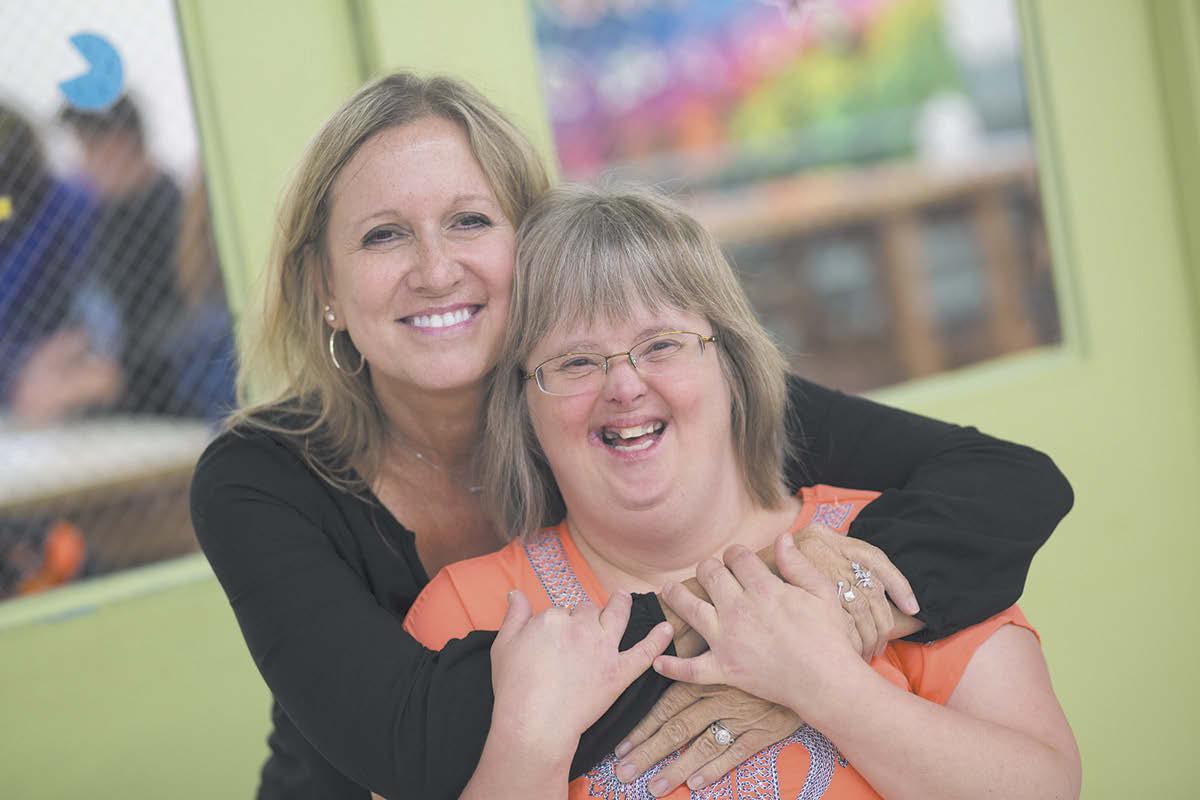
2 minute read
Cooking for Good
Cooking for Good
A Pennsylvania woman uses her passion to make a difference and honor a dear friend
By Melanie Anderson
When cookbook author Bobbi Leckrone stepped out for the Walk to End Alzheimer’s in York, Pennsylvania, last October, she inspired many friends to join her.
“Bobbi was the catalyst for Penn-Mar to join the walk and have a big presence,” says Lisa Hartley, residential supervisor at Penn-Mar Human Services. “We had eight team leaders who organized their own teams of walkers and raised a total of $8,432.”
The fundraising walk was a joyous event in Leckrone’s journey to advance Alzheimer’s research and awareness in memory of her longtime housemate, Erin McDonough. “When Erin was here, she was like a sister to me,” says Leckrone, who has lived in her group home since 1993. “That was really hard [to watch her suffer from Alzheimer’s disease].”

Bobbi Leckrone (right) with Lisa Hartley
Photo courtesy of Penn-Mar Human Services
Leckrone’s path to becoming an author and advocate began with a deep conversation. “Bobbi and I were discussing her aspirations for her life and she said she has always wanted to write a book,” says Hartley. “I know Bobbi likes cooking but I never knew she wanted to write a book. It’s not until you sit down and have this deep driving conversation where you find out what people’s dreams are.”
Together, they developed a plan for Leckrone’s fundraising cookbook, “Simply Delicious Recipes: Bon Appétit by Bobbi,” which is dedicated to McDonough and benefits the Alzheimer’s Association.
“We collected recipes from family and friends and people who I don’t know,” says Leckrone. People from around the country—and even abroad—shared cherished recipes in response to a call for contributions on social media.
Lisa Hartley, Residential Supervisor, Penn-Mar Human Services
“We had a big team [supporting us],” says Hartley. “It was such a big undertaking to get all these recipes compiled.” In fact, Penn-Mar staff continue to support Leckrone and Hartley as they fulfill orders— many from families touched by Alzheimer’s—and make public appearances, which have included leading cooking demos on local TV.
Through these efforts, Leckrone is also calling attention to the fact that people who have Down syndrome—like Leckrone and McDonough—have a greater risk of developing dementia. “I’m really happy about [being able to help],” says Leckrone.
Meanwhile, Leckrone has inspired her housemates to consider their own dreams. “There are a lot of dreams out there that just need to be brought out,” says Hartley.
Welcome Contributions
“People with intellectual and developmental disabilities should have the opportunity to feel the pride that comes with making a difference, and often they are some of the most active in our community when it comes to making that difference,” says Sean Luechtefeld, communications director at ANCOR. “Sometimes they need support to be able to do so, and with the appropriate access to that support, there is no limit to the positive impact that people with intellectual and developmental disabilities can have on our communities.”
Common ways individuals give back include:
- Volunteering with organizations like Meals on Wheels, Special Olympics and local nursing homes.
- Making art, crafts and baked goods to benefit charities.
- Entrepreneurship that fills a community need. For example, a Pennsylvania woman named Hillary launched a business that creates Braille menus for local restaurants.







